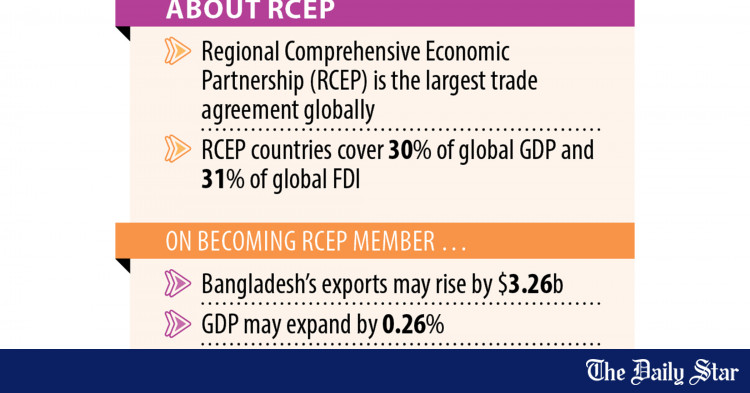Saif
Senior Member
- Joined
- Jan 24, 2024
- Messages
- 17,262
- Likes
- 8,334
- Nation

- Residence

- Axis Group


China wants to make solar panels in Bangladesh
Chinese Foreign Minister Wang Yi says while meeting with Chief Adviser Muhammad Yunus in New York
China wants to make solar panels in Bangladesh

Photo: CA Office
China, the world's largest solar power producer, wants to invest in the production of solar panels in Bangladesh, Chinese Foreign Minister Wang Yi told Prof Muhammad Yunus, chief adviser to the interim government, on Wednesday.
Meeting on the sideline of the UN General Assembly in New York, he said China would attach importance to Prof Yunus's call to Chinese solar panel manufacturers to set up factories in Bangladesh.
The chief adviser had urged this when the Chinese ambassador to Bangladesh paid a courtesy call on him last month.
Yunus told Wang Yi that Chinese solar companies could invest in a bigger way in Bangladesh, which enjoys preferable market access to many developed nations.
Currently, China has a total of 609,921 megawatts of installed solar power plants, which is the highest across the globe
Currently, China has a total of 6,09,921 megawatts (MW) of installed solar power plants, which is the highest across the globe, according to data of International Renewable Energy Agency (IRENA).
In contrast, Bangladesh installed 603MW solar plants so far, according to data of Bangladesh Power Development Board.
Bangladesh entered its renewable energy era in 2017 with the launch of a 3MW solar power plant in Jamalpur's Sharishabari. But since then, the progress in increasing renewable energy installations has been very slow.
Though the country has plans to meet around 30 percent of its power demand from clean energy by 2030 and 40 percent by 2040, the capacity is still at around 3 percent or 893MW, including energy generated from wind and hydroelectric power plants.
In Mujib Climate Prosperity Plan 2022-2041, submitted in the Conference of Parties (COP26), the renewable energy capacity target for 2030 had been set at 6,000MW-16,000MW.
This means, the country will have to generate about 5,100MW of electricity from renewable sources in the next six years to attain even the lowest committed amount.
Currently, the country has a capacity to produce around 27,000 MW of electricity mostly from fossil fuel-based plants, a key contributor of global warming.
GREATER TRADE TIES
Wang Yi said Beijing would also encourage greater cooperation and partnership between businesses of the two nations to deepen trade and economic ties with Dhaka.
He said Bangladesh would benefit from a Chinese decision to provide zero tariff access to all goods from the least developed countries.
He said the Red Cross Society of China has sent a team of doctors to treat students and people who were grievously injured during the July-August mass uprising. Wang Yi also said China would welcome more students from Bangladesh.
Wang Yi described Prof Yunus as "an old friend of the Chinese people" and congratulated him for assuming leadership of the interim government.
"We have full confidence in you, that you will live up to the expectations of the people," he said, adding that Yunus would also unite the country.
Prof Yunus thanked China and lauded Chinese efforts to lift hundreds of millions of people out of poverty.
The chief adviser stressed on closer relations with China and opening "a new chapter" in the ties between the two nations.
He also urged other Chinese product manufacturers to relocate their factories to Bangladesh and engage in technological collaborations. "We will love to collaborate with Chinese companies. We have a lot of scope to work together," he said.
China Committed to Bilateral Relations
Meanwhile, Chinese Ambassador to Bangladesh Yao Wen said irrespective of the changes that have taken place inside Bangladesh, China's commitment to developing bilateral relations remains unchanged, reports news agency UNB.
China sincerely hopes that under the interim government, Bangladesh will carry out state reform, maintain political stability, advance economic development and improve people's livelihoods, he said.
To support Bangladesh's development, China decided to grant zero-tariff treatment on 100 percent of taxable items from Bangladesh, he told an event at a hotel in Dhaka on Wednesday marking the 75th anniversary of the founding of China.
This means China will substantially increase import of cereals, sugar, edible oil, rubber and rubber products, wood products, jute and jute products, paper and paper products, wool and cotton from Bangladesh from December 1, 2024, said Yao Wen.
China will also import Bangladeshi mangoes, he added.
To combat floods, China is about to provide rescue facilities and equipment to Bangladesh, he said.
Yao Wen said since the interim government came to office, Chinese enterprises have invested more than $85 million in Bangladesh.
He said China would organise programmes focusing political exchange, economic and trade cooperation, culture, education, tourism, sports, public health, youth, women, media and academic interactions for improving people-to-people ties.
"I expect the young people to devote themselves to China-Bangladesh cooperation, passing the torch of friendship from generation to generation," he said.
Commerce and Finance Adviser Dr Salehuddin Ahmed joined the event as chief guest while Foreign Secretary Md Jashim Uddin was also present.
Photo: CA Office
China, the world's largest solar power producer, wants to invest in the production of solar panels in Bangladesh, Chinese Foreign Minister Wang Yi told Prof Muhammad Yunus, chief adviser to the interim government, on Wednesday.
Meeting on the sideline of the UN General Assembly in New York, he said China would attach importance to Prof Yunus's call to Chinese solar panel manufacturers to set up factories in Bangladesh.
The chief adviser had urged this when the Chinese ambassador to Bangladesh paid a courtesy call on him last month.
Yunus told Wang Yi that Chinese solar companies could invest in a bigger way in Bangladesh, which enjoys preferable market access to many developed nations.
Currently, China has a total of 609,921 megawatts of installed solar power plants, which is the highest across the globe
Currently, China has a total of 6,09,921 megawatts (MW) of installed solar power plants, which is the highest across the globe, according to data of International Renewable Energy Agency (IRENA).
In contrast, Bangladesh installed 603MW solar plants so far, according to data of Bangladesh Power Development Board.
Bangladesh entered its renewable energy era in 2017 with the launch of a 3MW solar power plant in Jamalpur's Sharishabari. But since then, the progress in increasing renewable energy installations has been very slow.
Though the country has plans to meet around 30 percent of its power demand from clean energy by 2030 and 40 percent by 2040, the capacity is still at around 3 percent or 893MW, including energy generated from wind and hydroelectric power plants.
In Mujib Climate Prosperity Plan 2022-2041, submitted in the Conference of Parties (COP26), the renewable energy capacity target for 2030 had been set at 6,000MW-16,000MW.
This means, the country will have to generate about 5,100MW of electricity from renewable sources in the next six years to attain even the lowest committed amount.
Currently, the country has a capacity to produce around 27,000 MW of electricity mostly from fossil fuel-based plants, a key contributor of global warming.
GREATER TRADE TIES
Wang Yi said Beijing would also encourage greater cooperation and partnership between businesses of the two nations to deepen trade and economic ties with Dhaka.
He said Bangladesh would benefit from a Chinese decision to provide zero tariff access to all goods from the least developed countries.
He said the Red Cross Society of China has sent a team of doctors to treat students and people who were grievously injured during the July-August mass uprising. Wang Yi also said China would welcome more students from Bangladesh.
Wang Yi described Prof Yunus as "an old friend of the Chinese people" and congratulated him for assuming leadership of the interim government.
"We have full confidence in you, that you will live up to the expectations of the people," he said, adding that Yunus would also unite the country.
Prof Yunus thanked China and lauded Chinese efforts to lift hundreds of millions of people out of poverty.
The chief adviser stressed on closer relations with China and opening "a new chapter" in the ties between the two nations.
He also urged other Chinese product manufacturers to relocate their factories to Bangladesh and engage in technological collaborations. "We will love to collaborate with Chinese companies. We have a lot of scope to work together," he said.
China Committed to Bilateral Relations
Meanwhile, Chinese Ambassador to Bangladesh Yao Wen said irrespective of the changes that have taken place inside Bangladesh, China's commitment to developing bilateral relations remains unchanged, reports news agency UNB.
China sincerely hopes that under the interim government, Bangladesh will carry out state reform, maintain political stability, advance economic development and improve people's livelihoods, he said.
To support Bangladesh's development, China decided to grant zero-tariff treatment on 100 percent of taxable items from Bangladesh, he told an event at a hotel in Dhaka on Wednesday marking the 75th anniversary of the founding of China.
This means China will substantially increase import of cereals, sugar, edible oil, rubber and rubber products, wood products, jute and jute products, paper and paper products, wool and cotton from Bangladesh from December 1, 2024, said Yao Wen.
China will also import Bangladeshi mangoes, he added.
To combat floods, China is about to provide rescue facilities and equipment to Bangladesh, he said.
Yao Wen said since the interim government came to office, Chinese enterprises have invested more than $85 million in Bangladesh.
He said China would organise programmes focusing political exchange, economic and trade cooperation, culture, education, tourism, sports, public health, youth, women, media and academic interactions for improving people-to-people ties.
"I expect the young people to devote themselves to China-Bangladesh cooperation, passing the torch of friendship from generation to generation," he said.
Commerce and Finance Adviser Dr Salehuddin Ahmed joined the event as chief guest while Foreign Secretary Md Jashim Uddin was also present.





































